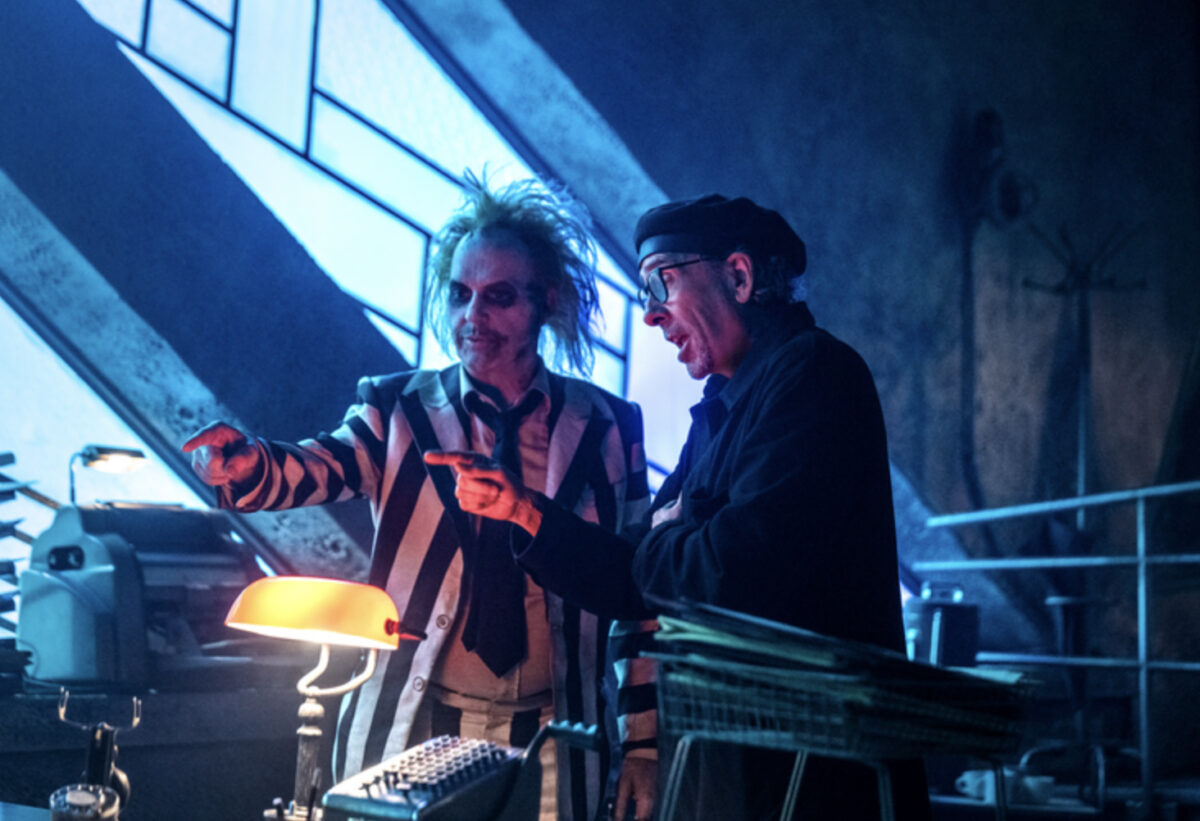‘Beetlejuice Beetlejuice’ is where Tim Burton found his, er, juice back

Legend has it that if you say Michael Keaton’s name three times, he’ll reunite with director Tim Burton for a Beetlejuice sequel. Image: Parisa Taghizadeh. Copyright: © 2024 Warner Bros. Ent. Inc.
During the filming of “Beetlejuice Beetlejuice,” Jenna Ortega told her co-star and onscreen mom, Winona Ryder, that certain shots in the film reminded her of “I am Cuba.” Bless her cinephile soul because Jenna almost made the icon weep with her reference. While I will need to revisit the 1964 classic to verify her claim, I can confirm that the long-gestating sequel to his sophomore effort about a crude trickster demon is a return to form for director Tim Burton. His recent projects are hit-and-miss affairs (more misses than hits), and the last time I took pleasure in his film was in the previous decade (the underappreciated “Frankenweenie”). Burton shed his worst impulses as a filmmaker and reconnected with his dark and anarchic roots to deliver an entertaining sequel.
With understandable reluctance, the Deetzes return to their haunted house for the funeral of their patriarch, Charles, who died of a gruesome shark attack. (In real life, the actor Jeff Jones (Charles Deetz) remains out of work after pleading no contest to hiring a minor to pose for explicit photos. With good reason, his character ends up as a headless ghost in the sequel.) Now a grieving widow, Delia Deetz (the inimitable Catherine O’Hara) remains as chaotic as ever. Experiencing a slight case of schadenfreude, she watches her headstrong stepdaughter and paranormal show host Lydia (Ryder) deal with her child Astrid (Ortega), a skeptic who dearly misses her late father. To top it all, her television producer and lover (Justin Theroux at his smarmiest) proposed during her father’s funeral. What remains clear to her is to avoid a certain trickster demon at all costs. Things go as planned until Astrid falls for a strange boy who has a thing for literature and the afterlife. Desperate times call for desperate measures, and desperate mothers call Beetlejuice.
One of the conditions Michael Keaton set before returning as Beetlejuice is that the sequel must not be a soulless computer-generated mess. While not a hundred percent practical effects (and I did miss the tactile quality of the original), the computer-generated imageries are set to a minimum—it looks and feels like actual humans crafted the film. What both movies have in common is an incredible cast. Keaton, a former stand-up comedian, kept his demon as crude and mad as before. Monica Bellucci steps in as his former wife, Delores, a vindicative literal soul-sucker. With a stapled face and limbs, the Italian actress looks straight out of a classic 1930s horror film. Willem Defoe seems to have had a fabulous time as a B-movie action star-turned-afterlife detective. Most modern blockbusters tend to underutilize their actors but not in this case. Even the surprise cameo of a Burton staple is quite substantial despite limited screen time.
Sure, “Beetlejuice Beetlejuice” relies on nostalgia, but Burton found the appropriate blend of silliness and macabre that makes it fun. It seems he has rediscovered, here it comes, his juice. The kind of juice that understands a scene where a character is spilling his guts must be seen in both literal and metaphorical sense. The kind of juice that uses the best nonsensical song ever in a musical dream sequence that features an orchestra, an elaborate dance, and a gigantic wedding cake covered in moldering green icing. The kind of juice responsible for “Beetlejuice Beetlejuice,” a perfect case of a film that has no business being good, but for some delightful reason, is a crackling good time.